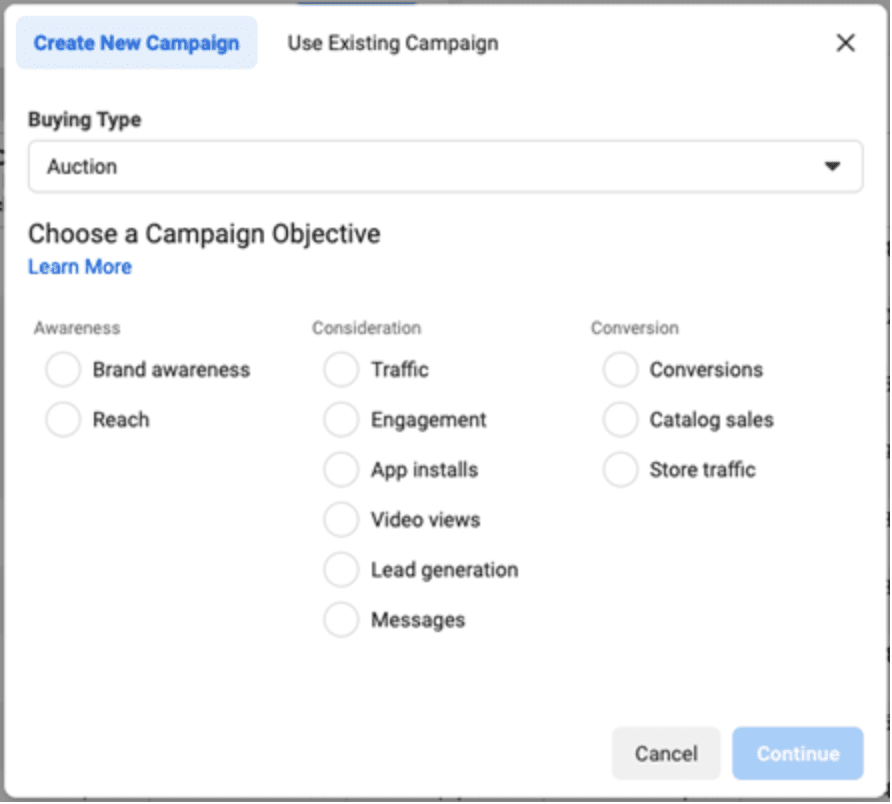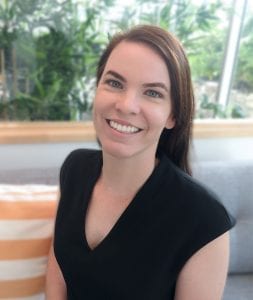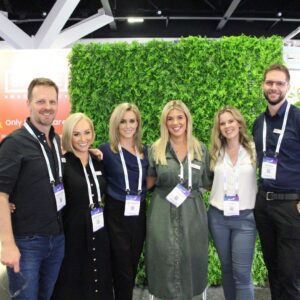With over 15 million Australians using it every month, Facebook is often an ideal platform for your healthcare business to grow your brand awareness and engage with your audience.
So you start running Facebook ads to promote your brand or generate income. And then you discover that they’re a fickle beast.
Even when you follow all the guides and Facebook resources to the best of your ability, your Facebook ads may not always work as well as you hoped.
If you’re a busy healthcare professional and not a professional marketer, it’s difficult to get the experience or insights necessary to effectively optimise your ads.
Clients often come to us at that point asking us to review their ads and get better results. Having done this for many clients, we know that, when a Facebook ad falls flat, it’s often due to a handful of easy-to-fix mistakes.
Here are the top 5 things that cause a Facebook ad to miss its mark.
1. You’ve selected the wrong Facebook campaign objective
While the ultimate objective of any marketing campaign is conversions, selecting ‘conversions’ as your campaign objective is not necessarily what will work best for your ad campaign.
In order to optimise your campaign for the selected objective, Facebook undergoes a ‘learning phase’ where the delivery system explores the best way to deliver your ad set.
During this time, your ad performance can be unstable. Results can fluctuate and click costs can be higher while Facebook figures out the best way to reach your campaign objective. In order to exit the learning phase, your ad set needs to complete 50 events within 7 days. Events are the actions related to the objective you’ve decided to optimise your Facebook campaign for.
So if you’ve selected ‘conversions’ as your campaign objective, this means if your campaign is not getting 50 conversions within a 7 day period, it is unlikely to exit the learning phase. Facebook will not be able to learn how to serve your ads for conversions and your click costs are more than likely to be sky high.
If you’ve experienced this or know it’s unlikely that your landing page or budget will generate 50 conversions in 7 days, start by selecting ‘traffic’ as your objective instead. That gives Facebook a chance to learn how to optimise your ads for your target audience.

2. Your audience targeting isn’t working
One cause of low ad engagement is that you’re targeting the wrong (or not quite right) audience. Testing is the only real way to tell if you’ve got this right but you can get off to a good start by following these tips:
- Dig deeper: Remember, when you target everyone, you target no one. Ensure you are taking advantage of not only demographic targeting, but interests and exclusions, so that you increase the relevancy of your audience which means lower click costs and faster campaign optimisation. (But don’t get carried away with this – the larger your relevant audience, the better, because it makes Facebook’s machine learning more efficient.)
- Or spread wider: While most ad campaigns can benefit from audience targeting, if your target location is small, such as a rural area, you may need to be broader with your audience targeting to ensure it is large enough for Facebook to learn from.
- Let Facebook choose: Facebook’s machine learning is very sophisticated. One option is to run your ads to a very broad audience and give Facebook the opportunity to optimise them and identify the best audience to serve your ad to. Then, using the audience of people who interacted with your ads and landing page, you can create lookalike audiences, which are audiences Facebook creates by finding people that share similar characteristics to your chosen audience. Identifying common characteristics in people who engage with your ad (using Audience Insights), enables you to be more targeted with your audiences for future campaigns.
Create your own lookalike audience: Consider what large audience sources (ideally over 5,000) you could use to create lookalike audiences such as Facebook page followers and engagers, website visitors or newsletter subscribers.
3. Your ads are missing the mark
Even if your ads are being served to the exactly right audience at the right time, ads on Facebook are intrusive. People aren’t on Facebook because they love the ads; they’re there to connect with their friends.
Irrelevant ads are annoying, so ensure yours are highly targeted so they resonate with your ideal client. To do that you need to consider:
- Imagery: Your ad graphic should feature images that your target audience will recognise themselves in or resonate with. For example, if you are a GP clinic chain advertising a men’s mental health service, ensure your ad image features men and/or doctors. Those doctors should look like a GP you’d find in Australia – avoid clinicians in white coats!
- Copy: Especially in the image text and headline, use language that will resonate or call out to your target audience while they are scrolling their news feed. Use the name of pain points, conditions or symptoms that they may be experiencing.
- Value: Above all, provide value to your target audience in the form of information, education or compassion.
TIP → Remember, when advertising medical services or products, keep advice general and avoid using second-person pronouns (you, yours) so that your ads don’t get rejected for violating Facebook’s health in advertising policy!
4. Your landing page isn’t optimised for ads
Your landing page is the webpage that your Facebook ad leads users to.
Your landing page needs to:
- Be congruent with your ad messaging and graphics so users feel they have landed in the right place
- Be visually easy to consume and engaging
- Lead users on a journey that helps them make the decision to take action
- Have a clear CTA (call to action)
- Have the Facebook pixel installed on it and event tracking set up.
For example, if you are a physiotherapist and your Facebook ad is targeting active gym-goers about the sports physiotherapy services you provide, the landing page should be congruent with the ad, otherwise your visitors will feel confused and leave. Your landing page should therefore have the same messaging as the ad (eg. sports physiotherapy can help recovery and performance), share more information about your sports physiotherapy services, and have a strong call to action (eg. Book Now). This will give the visitor confidence that you offer the services that your ad says you do and lead visitors to take action.
Leading ads to your homepage can be appropriate when the ads are building awareness about your business and your homepage is adequately optimised, but ensure you follow the list above and your homepage is targeted to the same audience as your ad.
If your landing page is not optimised adequately, the bounce rate (rate of visitors who leave your website without taking action) will be higher, your conversion rates lower and your ads will not be profitable.
Even the best ad cannot fix a bad landing page or website.
5. You’re looking for results in the wrong place
While Facebook ads can be an excellent conversion generator, these conversions are not always found in Facebook campaign results!
Facebook excels at creating awareness and consideration for healthcare services and products. While Facebook also drives website traffic, users are often not ready to take action at the time that they see your ad in their newsfeed.
Facebook ads often have a low conversion rate but they’re worth it nonetheless. Why? Because running Facebook ads usually results in increased organic search (Google search), paid search and direct conversions while reducing the average cost per conversion.
This means it’s vital to have Google Tag Manager, Google Analytics and Facebook event tracking set up correctly so that you can accurately measure the results of your ad campaigns!
How Splice Marketing can help with your Facebook ads
Facebook ad campaigns often take time to work. The best results are often seen after a few months once the ad platform has had time to learn and the ads have been optimised based on ad account data and user behaviour.
Splice Marketing has helped many healthcare practices or brands to grow through effective Facebook ads.
Our PPC (pay per click) service includes:
- Keyword searches
- Audience targeting
- Creating your ad campaign including graphics, copy and landing page
- Building your ad
- Monitoring its impact and adjusting if necessary
- Managing your budget to ensure you receive the best ROI.
If you’d like help with Facebook ads, please contact us today.




